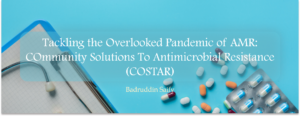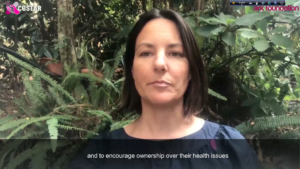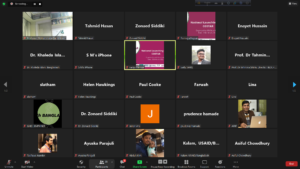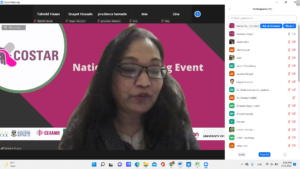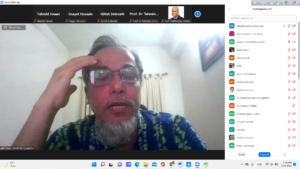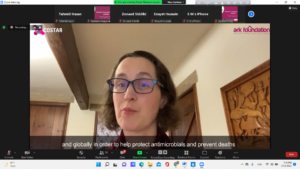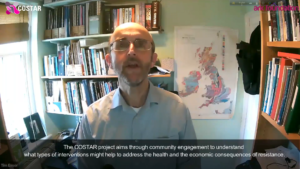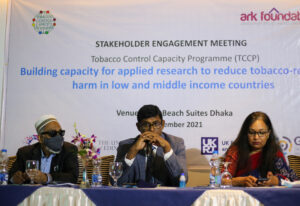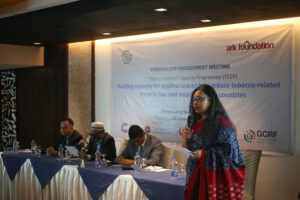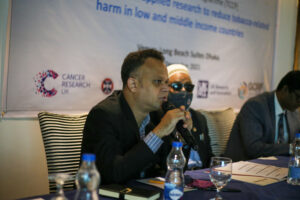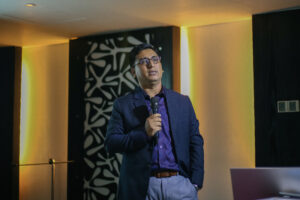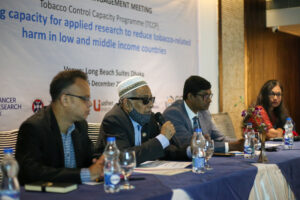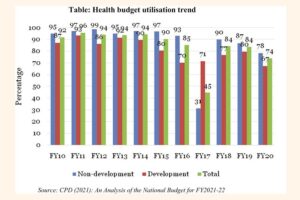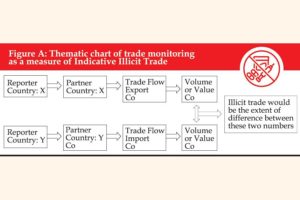Antibiotic resistance (ABR) arises when bacteria develop resistance to antibiotics. In other words, antibiotics are ineffective against them. It is a common myth that people or animals develop resistance to antibiotics, whereas, in reality, it is germs that become resistant antibiotics.

Vector illustration of superbugs.No gradients used. CMYK. Objects grouped for easy editing. Created with AI CS3.
When AMR becomes dominant in the health sphere of our daily life, it will pose a grave danger to the very existence of human and animal health. It is pervasive for us-humans and our domestic and wildlife animals to get sick due to different bacterial attacks and infections.
According to the UK Government-commissioned Review on Antimicrobial Resistance, by 2050, AMR might kill 10 million people each year. In 2019, an estimated 4.95 million fatalities were linked to bacterial AMR, and AMR caused an estimated 1.27 million deaths. The World Health Organization (WHO) has also raised its concerns about AMR, claiming that it might be the most serious threat to global human health and food security in the upcoming days.
To address this alarming issue, especially in the low-resource settings where community people have unrestricted accessibility to over-the-counter (OTC) antibiotics and have little or no knowledge regarding antimicrobial resistance, expansive community engagement is required.
ARK Foundation along with the University of Leeds has launched a new project titled “Community Solutions to Antimicrobial Resistance (COSTAR)” to address the alarming issue of AMR in Bangladesh. An online launching event was organized on March 13, 2022 to inaugurate the project. COSTAR, a joint initiative by the University of Leeds, ARK Foundation Bangladesh, HERD International Nepal, Chittagong Veterinary University (Bangladesh), Malaria Consortium, University of Liverpool, and the University of Western Australia, is being implemented in Bangladesh and Nepal. The project is being implemented with the support of UK Research and Innovation GCRF collective fund.
The aim of this project is to engage community through participatory approaches to tackle AMR. The project has several interventions planned to exercise at the community level in Bangladesh and Nepal. The main component of the project is Community Dialogue Approach (CDA) which will be implemented based on two previously funded studies. to them.
Professor Rumana Haque, PhD, Executive Director of the ARK Foundation said in her welcome speech that Antimicrobial Resistance is a growing threat to both human and animal health. The irrational use of antibiotics among humans and animals further worsens the situation. Stressing on the economic impact of AMR, she mentioned a recent study that finds that Bangladesh can face almost BDT 788 thousand crores decrease in GDP by 2050 if AMR is not curbed now. She said that the COSTAR project would prevent antimicrobial resistance in Bangladesh through community dialogue approach (CDA) interventions.
Dr. A H M Enayet Hussain, Director General of Directorate General of Medical Education (DGME) Ministry of Health and Family Welfare, chaired the session. He expressed concerns over the misuse of antibiotics in Bangladesh and urged immediate multisectoral collaboration to tackle the growing antimicrobial resistance in Bangladesh
Dr. Khaleda Islam, Surveillance Lead of AMR Control Program, Fleming Fund, said that it is very important to trace the drivers and factors behind the irrational use of antibiotics at the household level and the decision-maker of using them. Dr. Tahmina Shirin, Director, Institute of Epidemiology, Disease Control and Researchstated that the trend of AMR is constantly rising all over the country for the past five years. The current data suggest that the AMR is rising not only in the hospitals but also in the communities. Motivating community people alone will not enable us to get rid of this problem. We need revised and regulations to address the irrational use of antibiotic. She stressed on the importance of increasing country wide effective surveillance mechanism in hospitals to address AMR.
Dr Abul Kalam from USAID addressed the importance of community engagement to solve issues like antibiotic resistance. He acknowledged the community involvement in achieving the country’s freedom in 1971 and said that community engagement has always been a great tool to Bangladesh’s armory. He hoped that COSTAR through its community engagement approach will succeed in tackling AMR in Bangladesh.
Dr. Nitish C Debnath, Country Lead, Fleming Fund, appreciated the multidisciplinary approach of the COSTAR project and hoped that this project will enable the researchers to generate better information.
Dr. Rebecca King, Principal Investigator of the COSTAR project said in her video message that COSTAR will address the drivers of AMR in Bangladesh and globally in order to help protect antimicrobials and prevent deaths from preventable diseases for future generations.
Dr. Tim Ensor, Professor, University of Leeds, mentioned about the lack of evidence to design interventions to reduce the harmful consequences of AMR. The COSTAR project aims to understand what types of interventions through community engagement might help to address the health and the economic consequences of resistance.
All of the guests, the chair, and the chief guest applauded the initiative in the country and expressed that this project has the potential to become an impeccable example to follow for low-resource settings in the country.
Written by: Badruddin Saify, Research Assistant, ARK Foundation
News Links:
- https://www.tbsnews.net/economy/corporates/ark-foundation-launches-costar-address-antimicrobial-resistance-384628
- https://bangladeshpost.net/posts/concern-over-inefficacy-of-antimicrobials-in-bangladesh-81651
- https://sharebiz.net/%E0%A6%85%E0%A7%8D%E0%A6%AF%E0%A6%BE%E0%A6%A8%E0%A7%8D%E0%A6%9F%E0%A6%BF%E0%A6%AE%E0%A6%BE%E0%A6%87%E0%A6%95%E0%A7%8D%E0%A6%B0%E0%A7%8B%E0%A6%AC%E0%A6%BF%E0%A7%9F%E0%A6%BE%E0%A6%B2%E0%A7%87%E0%A6%B0/

